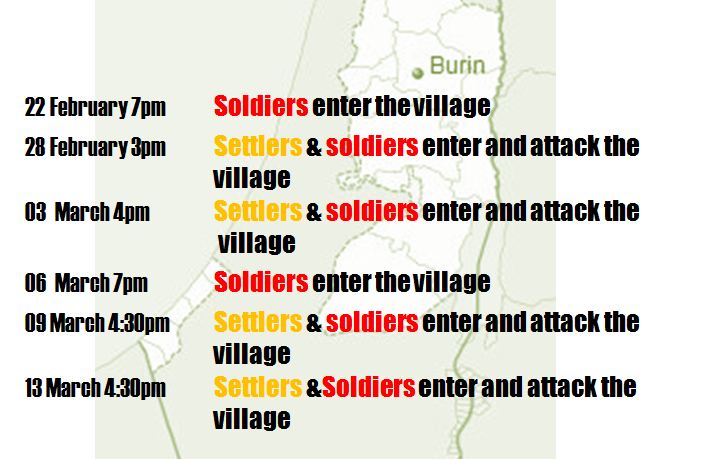Tag: Burin
-
Nablus: 2 youth arrested during night raids into Burin
by Lydia 13 March 2012 | International Solidarity Movement, West Bank On Monday, 12 March at 9pm, the soldiers were making themselves comfortable yet again in the village of Burin. Around 6 jeeps entered and 10 jeeps surrounded the village. It seemed for a while it was just another evening of playground antics with the…
-
Mapping a pattern of Israeli violence in Burin
13 March 2012 | International Solidarity Movement, West Bank The pattern of settler and military invasion of Burin, a village near Nablus, is what locals and internationals are mapping to brace themselves for more property damage, violence, and threats by nearby illegal settlements and hardcore adherents to the volatile “Price Tag Campaign.” If the pattern…
-
Settler violence rages in Nablus area
by Jonas Weber 29 February 2012 | International Solidarity Movement, West Bank Yesterday, violence erupted close to Joseph’s Tomb when settlers gathered near the site. Youths from Balata refuge camp came out to chase the settlers off but where kept at a distance by the soldiers that accompanied the illegal settlers as usual. This is…


